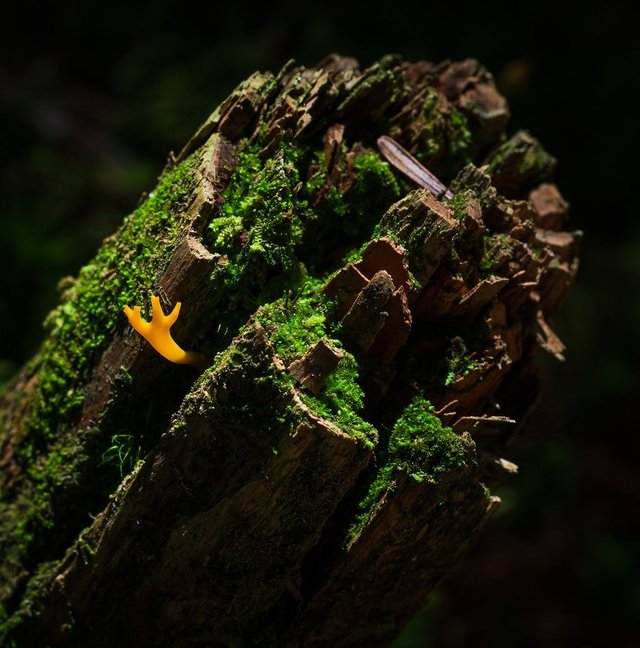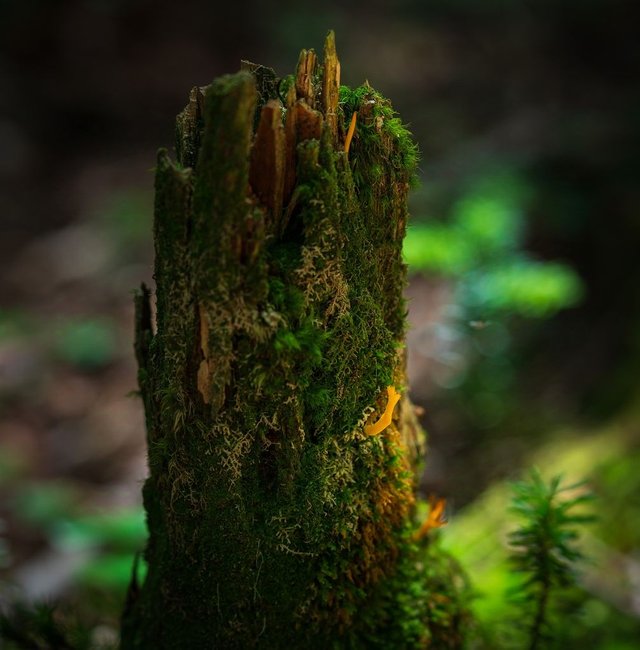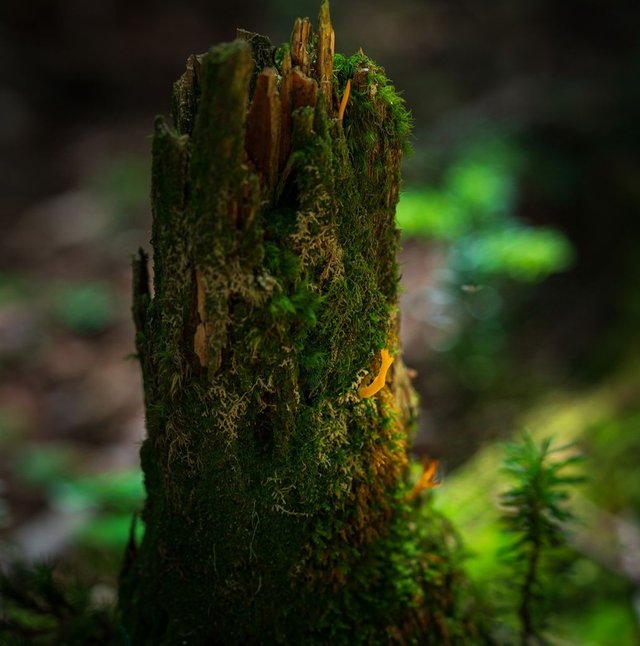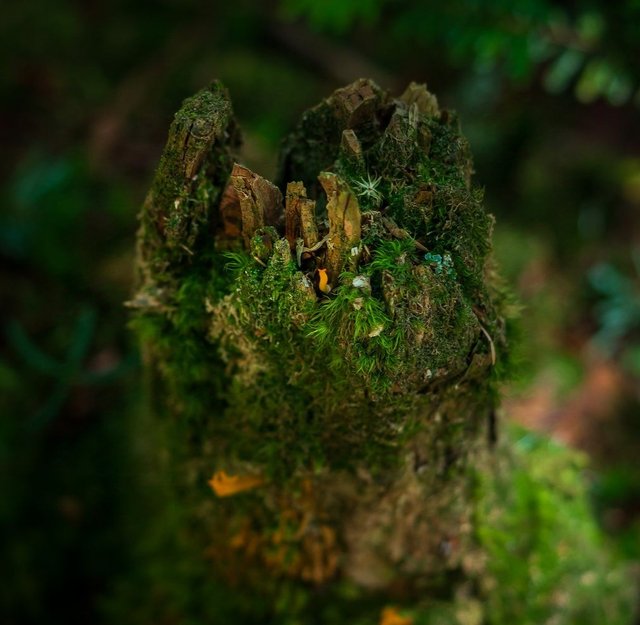Exploring Calocera viscosa: The Bright and Curious "Yellow Stagshorn" Fungus
Calocera viscosa, commonly known as the "Yellow Stagshorn" or "Stag's Horn" fungus, is a captivating species that belongs to the Dacrymycetales order within the Basidiomycota phylum. Its vibrant, antler-like form and distinct yellow to orange coloration make it easy to spot in coniferous forests and woodlands throughout the temperate regions of North America, Europe, and Asia. Here, we’ll explore Calocera viscosa’s unique morphology, ecology, and role within its ecosystem.
Morphology: Identifying the "Stag’s Horn" Fungus
Calocera viscosa is readily identifiable due to its vivid color and characteristic branching structure. The fruiting bodies typically resemble a small cluster of delicate, antler-like structures, ranging from 5 to 10 centimeters in height, though they can sometimes be smaller depending on growing conditions.
Coloration: The fungus is usually bright yellow when young but may darken to a more orange hue as it matures. This vibrant color is what earns it the "yellow" in its common name and makes it visually striking against the dark forest floor or decaying wood.
Structure: The "stag's horn" nickname is derived from its branched, antler-like structure. Each fruiting body branches repeatedly, giving it an overall look reminiscent of a deer’s antlers. This branching structure can be somewhat irregular, with each branch being slightly flattened or cylindrical in shape.
Texture and Surface: True to its Latin name, the surface of Calocera viscosa can appear slightly gelatinous, especially when wet. Although the texture is more rubbery or jelly-like, it can also feel slimy in damp conditions. This texture gives it a somewhat unique feel compared to many other woodland fungi.




